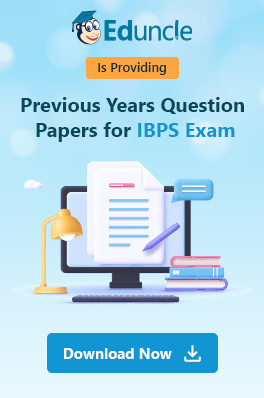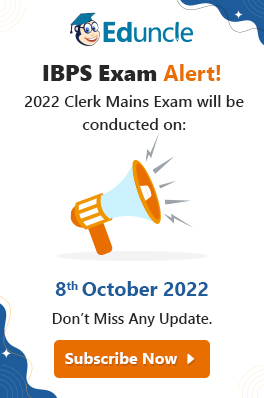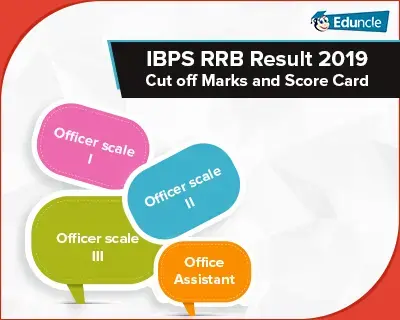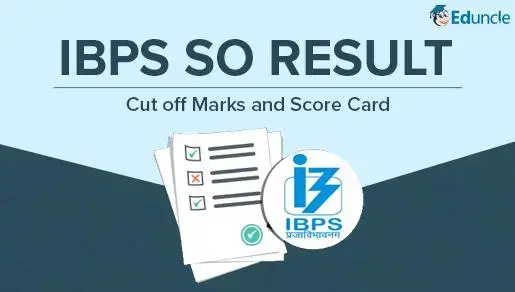Are you looking for the latest IBPS SO Syllabus, Exam Pattern? If so, then you are at the right place!
IBPS Specialist Officer Syllabus is the very first thing every aspirant who want to take the IBPS SO Exam, seek for, as it gives a clear picture of the complete course.
The IBPS SO Syllabus can tell you nearly everything which you really need to know about which topics are important to cover, how the course will be run, how can you schedule and prioritize your study flow etc.
IBPS made many changes in the IBPS SO Exam Pattern. Check the updated Exam Pattern for all posts in this blog.
Before initiating the exam preparation, the aspirants are required to have the complete knowledge about:
IBPS Specialist Officer Syllabus for IT Officer Scale 1, IBPS SO IT Officer Syllabus 2022, IBPS Specialist Officer HR Syllabus, IBPS SO Syllabus 2022 for Law, Agricultural and Marketing Officer.
IBPS SO Exam Pattern {Updated}
So let’s begin knowing the nature of exam in a better way!
Get Free Counselling from IBPS SO Experts!
IBPS SO Syllabus - Check here!
The official website have provided details regarding the IBPS Specialist Officer Syllabus & Exam Pattern. Please Check below to get the complete syllabus for all the following sections of IBPS SO -
IBPS SO Syllabus for Reasoning
IBPS Specialist Officer Syllabus for Quantitative Aptitude
IBPS General Awareness Syllabus for Specialist Officer
IBPS SO Professional Languages Syllabus
IBPS Specialist Officer Syllabus for Reasoning
Please mark the topics given below as important-
Logic
Classification
Cubes and Dice
Data Sufficiency
Syllogism
Clocks & Calendars
Arithmetical Reasoning
Mathematical Operations
Input-Output
Coding-Decoding
Analogy
Blood Relation
Puzzle Test
Direction Sense
Logical Venn Diagrams
Alphabet & Alpha Numeric Sequence Test
Eligibility Test
Arrangements-Linear & Circular
Series Test
Odd Figures
Miscellaneous Test.
Must Read - IBPS Reasoning (PO, Clerk, SO and RRB) | How to Conquer It?
IBPS Specialist Officer Syllabus for English
Please cover each and every topic very carefully as your English skills are very important in both the selection rounds - Online Test and Interview Round.
Please mark the Important Topics given below-
Verb
Tenses
Adverb
Articles
Grammar
Homonyms
Synonyms
Antonyms
Vocabulary
Conclusion
Error Correction
Fill in the Blanks
Sentence Completion
Word Formation
Theme Detection
Passage Completion
Rearrangement of Passage
Spelling
Sentence Framing
Active-Passive Voice
Indirect-Direct Speech
Phrases and Idioms
Must Read - IBPS English Preparation for Bank Exams 2022 - Tips & Study Material!
IBPS SO Syllabus for Quantitative Aptitude
The IBPS Specialist Officer Syllabus for Quantitative Aptitude consists all the Mathematical Questions and Calculations like - Arithmetic and Data Interpretation.
This section is designed to measure how fast and accurate you are in dealing with numbers, viz. computation, quantitative reasoning, interpretation of tables and graphs.
Below are some important topics-
Roots
Clocks
Averages
Pie Charts
Bar Graphs
Logarithms
Probability
Line Graphs
HCL & LCM
Percentages
Mensuration
Simplification
Profit & Loss
Time & Work
Number System
Boats & Streams
Pipes & Cisterns
Problems on Ages
Time & Distance
Problems on trains
Stocks & Shares
Tabulation
Decimal & Fractions
Ratio & Proportions
Mixtures & Allegations
Volume & Surface Area
Permutation & Combination
Simple & Compound Interest
Heights & Distance Relationships
Must Read - IBPS Quantitative Aptitude: Exclusive Strategies to Target the Cut Off!
IBPS Specialist Officer Syllabus for General Awareness
The IT Officer Syllabus, IBPS SO Syllabus for IT Officer Scale 1, IBPS Specialist Officer HR Syllabus, Law, Marketing and Agricultural Officer Syllabus covers complete Current Affairs of past 6 month and General Knowledge with reference to banking Industry, banking terms and terminologies and Fiscal-Monetary Policies to assess candidate’s knowledge of past and present events.
Apart from Current Affairs & General Knowledge, the candidates are also required to cover the topics given below-
Sports
History
Culture
Indian Economy
International Economy
Geography
General Politics
Scientific Research
Indian Constitution
Countries and Capitals
Budget & Five Years Plans
UNO
Marketing
Awards & Honors Sports
Financial News
Agriculture
Science & Technology
Bills – New & Amendments
Memorandum of Understanding
Appointments & Companies Mergers
Must Read - Tips to Score Well in IBPS General Awareness Section!
Download IBPS SO Answer Keys - Free PDF
IBPS SO Syllabus for Professional Languages
The IBPS SO Syllabus for Professional Languages 2022 is available for following fields –
IBPS Specialist Officer HR Syllabus
IBPS Agricultural Officer Syllabus
Syllabus for IBPS Specialist Officer in Law
IBPS Specialist Officer Marketing Syllabus
IBPS Specialist Officer Syllabus for Rajbhasha Adhikari
The candidates belonging to one of these fields will have to appear in the paper of professional language for their concerned field and qualify it by gaining score more than the cut-off marks.
IBPS IT Officer Syllabus
At Eduncle, the aspirants are provided the prescribed IBPS IT Officer Syllabus 2022 in a well-structured manner.
Below you can find the complete IBPS SO Syllabus for IT Officer Scale 1.
Database Management System
File Based Data Management – Disadvantages of file system
Database systems – Need for Database, Advantages of using a database
Characteristics of data in a database – Functions of DBMS, Components of a database, Comparison between Database and file-processing systems
Data dictionary – Data abstraction, Data independence – Logical and Physical data independence
Architecture: Overall Architecture of DBMS
Three level architecture - Hierarchical, Networking, Relational Data Models (E-R Model, E-R Diagrams, EER Model), Advantages and Disadvantages of each model.
Advanced Concepts: Introduction to Data warehousing and Data mining – Different types
Client/Server Technology: Client – Server – Distributed and Co-operative processing – Peer- to – Peer processing – Application components – Transaction management.
Relational Structure – Characteristics of Relational Database Model – CODD’s rules – Tables (Relations), Rows (Tuples), Domains, Attributes, Extension, Intention.
Keys: Candidate Key, Primary Key, Foreign Key, Super Keys, Unique Keys.
Data Constraints: Referential Integrity Constraints, Entity Integrity Constraints, Constraints like Primary key constraint, Unique, Check constraint strong Entity, Weak Entity.
Normalization: Introduction – Purpose of Normalization – Definition of Functional Dependence (FD) Relational database Design, – Normal forms: 1NF, 2NF, 3NF, BCNF, 4Nf and 5 NF.
Database Administration: DBA Tasks – DBA Tools – User Privileges – Performance monitoring and tuning – Query tracing – Backup and Recovery.
Introduction to SQL: Advantages of SQL – Invoking SQL*PLUS, The Oracle Data-types, Data Definition Language (DDL), Data Manipulation language (DML), Data Control Language (DCL), Data Query Language ( DQL) and all related commands.
Queries using Group by and Order by clause & Join: Querying a Single Table, Ordering results, grouping the results, Joins, Types of Joins, Sub queries.
Operators: Logical, Value, Syntax and Query expression operators – Set operators.
Functions: Character, Arithmetic, Date and time, Group and Miscellaneous Functions, Commit, Rollback, Savepoint.
Format models: Character, Numeric & Date Format models.
Views: Introduction – Advantages of views – The Create View Command, Updating Views, Views and Joins, Views and Sub queries – Dropping Views.
Sequences: Creating Sequences, Altering Sequences, Dropping Sequences.
Indexes: Index Types, Creating of an Index: Simple Unique and Composite Index, Dropping Indexes.
Snapshots: Creating a Snapshot, Altering Snapshot, Dropping a Snapshot.
Introduction to PL/SQL: The PL/SQL Syntax, The PL/SQL Block Structure, Fundamentals of PL/SQL, Advantages of PL/SQL data Types.
Control Structure: Conditional Control, Iterative Control, Sequential Control.
Exception handling: Predefined Exception – User defined Exception.
Cursors: Implicit and Explicit Cursors
Procedures: Advantages – Creating – Executing and Deleting a Stored Procedure.
Functions: Advantages – Creating – Executing and Deleting a Function.
Database Triggers: Use of Database Triggers – How to apply database Triggers – Types of Triggers – Syntax for Creating Trigger – Deleting Trigger.
Data Communication and Networking
Data Communication: Components of a data communication – Data flow: simplex – half duplex – full duplex; Networks – Definition – Network criteria – Types of Connections: Point to point – multipoint; Topologies: Star, Bus, Ring, Mesh, Hybrid – Advantages and Disadvantages of each topology.
Types of Networks: LAN – MAN – WAN – CAN – HAN – Internet – Intranet –Extranet, Client-Server, Peer To Peer Networks.
Transmission Media: Classification of transmission media – Guided – Twisted pair, Coaxial, Fiber optics; unguided – Radio waves – Infrared – LOS – VSAT – cabling and standards
Network devices: Features and concepts of Switches – Routers (Wired and Wireless) – Gateways.
Network Models: Protocol definition – standards – OSI Model – layered architecture – functions of all layers.
Data Link Layer: Framing & its methods, Flow Control, Error control. DLL Protocol, Piggybacking & Pipelining. MAC Sub layer, Media access control for LAN & WAN, collision, IEEE 802 standards for LAN & MAN & their comparison. Ethernet, Wireless LANs, Broadband Wireless, Bluetooth.
Network Layer: Routing, Congestion Control Algorithms, IP protocol, IP Addresses, Comparative study of IPv4 & IPv6, Mobile IP.
Transmission Control Protocol (TCP) – User Datagram Protocol, Data Traffic, Congestion Control and Quality of Service
Network Security: Cryptography, Message Security, Digital Signature, User Authentication, Key Management, Security Protocols Internet,DNS,SMTP, FTP, HTTP, WWW, Virtual Terminal Protocol.
Operating System
Introduction to System Programs & Operating Systems, Buffering & Spooling, Types of Operating System.
File concepts, access methods, free space managements, allocation methods, directory systems, protection, organization, sharing & implementation issues, etc.
Process: Concept, Process Control Blocks (PCB), Scheduling criteria Preemptive & non Preemptive process scheduling, Scheduling algorithms, algorithm evaluation, multiple processor scheduling, real time scheduling, threads, critical section problem, semaphores, and classical problems of synchronization, etc.
Memory Hierarchy, logical and physical address space, swapping, contiguous and non-contiguous allocation, paging, segmentation, Concepts of virtual memory, Cache Memory Organization, demand paging, page replacement algorithms, allocation of frames, thrashing, demand segmentation.
Distributed operating system:-Types, Design issues, File system, Remote file access, RPC, RMI, Distributed Shared Memory(DSM), Basic Concept of Parallel Processing & Concurrent Programming
Security & threats protection: Security violation through Parameter, Computer Worms & Virus, Security Design Principle, Authentications, Protection Mechanisms.
Software Engineering
The Software Product and Software Process Models, Software Process customization and improvement.
Requirement Elicitation, Analysis, and Specification Functional and Non-functional requirements, Validation, Trace ability.
Software Design, Architectural Design, User Interface Design, Function-oriented Design, SA/SD Component Based Design, Design Metrics.
Software Analysis and Testing, Software Test Process, Testing Levels, Test Criteria, Test Case Design, Test Oracles, Test Techniques, Black-Box Testing, etc.
Software Maintenance & Software Project Measurement: Software Configuration Management (SCM), Re-engineering, Reverse Engineering. Project Management Concepts, Feasibility Analysis, Project and Process Planning, Resources Project Scheduling and Tracking, etc.
Free Download IBPS SO Sample Study Notes
Data Structure
Introduction: Basic Terminology, Data types and its classification, Array Definition, Representation and Analysis of Arrays, Single and Multidimensional Arrays, etc.
Stack, Array Implementation of stack, Linked Representation of Stack, Queue, Array and linked implementation of queues, Circular queues, D-queues and Priority Queues. Linked list, Generalized linked list.
Trees: Basic terminology, Binary Trees, Complete Binary Tree, Extended Binary Trees, Array and Linked Representation of Binary trees, etc.
Internal and External sorting ,Insertion Sort, Bubble Sort, selection sort Quick Sort, Merge Sort, Heap Sort, Radix sort, Searching & Hashing: Sequential search, binary search, Hash Table, Hash Functions, etc.
Graphs: Introduction, Sequential Representations of Graphs, Adjacency Matrices, Traversal, Connected Component and Spanning Trees, Minimum Cost Spanning Trees.
Compiler Design
Introduction to Compiler, Phases and passes, Bootstrapping, Implementation of lexical analyzers, LEX: lexical analyzer generator, Input buffering, Recognition of tokens, Error handling.
Basic Parsing Techniques: Parsers, Shift reduce parsing, operator precedence parsing, top down parsing, predictive parsers, LR parsers , an automatic parser generator
Syntax directed definitions, L-attributed definitions, Syntax directed Translators, Intermediate code, etc.
Symbol Tables, Run-Time Administration, simple stack allocation scheme, storage allocation in block structured language, Code Optimization and Code Generation
Parsing control statements, syntax diagrams, Error Recovery, Interpreting control statements, parsing programs, procedures and Functions.
Computer Organization and Microprocessor
Computer System: Basic Computer Operation, Machine Instructions, Addressing Modes, DLX Architecture,
Computer Configuration, Memory organization, Memory Architecture and Interface, DMA, Synchronization, etc.
Microprocessor As A CPU– types of Microprocessor, Microcomputers, Computer Languages, Flags, Program Counter(PC), Stack Pointer, OPCode Format, etc.
Input-output System.
Object Oriented Programming (OOPS)
General concept OOPS– Object, Classes, Data Abstraction, Encapsulation, Inheritance, Polymorphism, Methods and Messages, Dynamic Binding.
Features, Advantages and Applications of OOPS
Aggregation and Association, Generalization, Multiple Inheritance.
As you have seen above, we provided the complete IBPS IT Officer Syllabus. You can also download it for free from Eduncle.
For an in-depth study, Know more about IBPS SO IT Officer!
| Download Free IBPS SO Study Material for All Subjects [Trusted & Recommended by 4600+ Selected Students] |
| Updated Syllabus for All Subjects |
| Sample Theory Notes |
| Model Test Papers with Solution (All Sections) |
| 5 Previous Year Exam Papers with Answer Keys |
| Complete Study Plan for All Sections |
| Paper Analysis by Eduncle Experts |
| Personalized Guidance by Subject Experts |
IBPS Specialist Officer Syllabus for Human Resource Management
The candidates who seek their future as Human Resource Manager in Reputable Banking Organizations should follow the complete IBPS Specialist Officer HR Syllabus given below-
HR Introduction
Staffing
Wage and Salary Administration
Principles of Management
Leadership styles
HR Planning
Job analysis (Procedures, Methods and Techniques)
Job design (Meaning and Techniques)
Recruitment and selection (Procedure, Process and Barriers)
Interview (Types of tests, Types of interviews and limitations)
Placement (Induction, Procedure and benefits)
Training and Development (Types and methods)
Performance appraisal (Process, uses and techniques)
Promotion, transfer and demotions (Types, policies)
Job evaluation (Pre-requites, principles and process)
Compensation (Theories of wages, compensation administration and criteria to develop compensation plan)
Motivation (Theories, Importance, Factors impacting)
Industrial Relations
Factories Act
Industrial Relations Act
Gratuity Act
Provident Fund Act
Strategic Role of Information in HRM
Information Technology-Concepts & Issues
HRIS Implementation and Control
Designing an HRIS Department
Compensation and Benefits Management
Transactional Analysis
Rewards & Recognition- Types of Rewards, Monetary and non-monetary, Performance Reward
Incentives
Mobility of Personnel and Retirement-transfers
Emotional Intelligence and Managerial Effectiveness
Managing Changes and Organizational Effectiveness
Management Process and Organizational Behavior
Managing Interpersonal and Group Processes
IBPS SO Syllabus for Marketing
Marketing Jobs are trendy these days! Most of the graduates seek for a career in marketing and IBPS provides them an opportunity to fulfill their dreams with the IBPS Marketing Officer Exam.
The IBPS Marketing Officer Syllabus is given below, please have a look and prepare accordingly.
Marketing Overview
Concept, Nature, Scope and Importance of Marketing
Meaning, Functions and Importance of Marketing Management
Marketing Process and Marketing Planning
Consumer/ Buyer Behavior
Market Segmentation: Importance of Market Segmentation
Marketing Research
Product Planning and Development
Sales Promotion and its Objectives
Branding, Packaging and Labeling
Pricing Decisions: Pricing, Pricing Decision Strategies
Wholesale Trade
Retail Trade
Personal Selling
Services Marketing
Bank Marketing
Insurance Marketing
Consumer Protection in India: List of Consumer Rights, Consumer Protection Act
Marketing Organization
Marketing Program
Marketing Decision Making
Sales Forecasting
Product
Distribution: Definition, Channels of Distribution
Advertisement
Sales Management
Marketing Environment
Rural Marketing
International Marketing
Social Responsibility and Business Ethics.
Syllabus for IBPS Law Officer
The candidates who are having an interest in law field should definitely apply for IBPS SO Exam as it gives candidates a great platform to showcase their excellence in Law with the help of IBPS Law Officer Exam.
Those who qualify the exam, get placed in reputable government organization on the position of Law Officer.
Below is the complete IBPS SO Syllabus for Law Officer, Please read it carefully and start your preparation accordingly!
You can check the Important Banking Terms to practice well for this section!
Banking Regulation & Compliance and Legal Aspects
RBI’s Constitution and Objectives
Banking Regulation Act, 1949
Reserve Bank of India Act, 1934
Credit Information Bureau (India)
Banker-Customer Relationship
Payment and Collection of Cheques and Other Negotiable Instruments
Types of Collaterals and their Characteristics
Foreign Exchange Management Act,1999
The Prevention of Money Laundering Act, 2002.
Download Free Study Plan & Boost your Learning!
Banking Regulated Important Laws
Limitation Act, 1993
Banker’s Books Evidence Act, 1891
The Recovery of Debts due to Banks and Financial Institutions (DRT) Act,1993
Securitization and Reconstruction of Financial Assets and Enforcement of Security Interest (SARFAESI) Act, 2002
Miscellaneous Provisions Consumer Protection Act, 1986
The Banking Ombudsman Scheme, 2006
Procedure for Redressal of Grievance
Lok Adalats.
Commercial Laws with Reference to Banking Operation
Contracts of Guarantee
Contracts of Bailment
Contracts of Pledge
Contracts of Agency
Meaning and Essentials of a Contract of Sale
Definition, Meaning and Nature of Partnership
Dissolution of a Firm
Effects of Non-Registration
Definition and Features of Company
Types of Companies
Memorandum of Association and Articles of Association
Doctrines of Ultra/Constructive Notice/Indoor Management
Transfer of Property Act, 1882
The Right to Information Act, 2005
Right to Information and Obligation of Public Authorities
Information Technology Act, 2000
IBPS Specialist Officer Exam Syllabus for Agriculture Field
The candidates appearing for IBPS SO Agriculture Exam must have a basic knowledge of general topics such as Agriculture, seeds, soil, vegetables, animal husbandry etc. Check topics given below.
Please check it out to score more!
Agriculture Current Affairs
Crop Horticulture Vegetables
Spacing time of Sowing Seed Rate
Varieties Important only
Herbicides Pesticides
Important points regarding crops fruits vegetables
Preservation of fruits and vegetables
Types of cropping system
Different Diseases
Seed technology – Different government schemes
Agriculture economics – Agriculture cost and schemes
Different types of agricultural practices
Soil resources
Indian soil
Types of facts
Green manures
Animal husbandry and technology
Different varieties of animals
Agriculture small industries like honey daily in the fisheries
Different diseases and its causes
Rural welfare activities in India
Before independence
After independence
Different insurance schemes regarding agriculture
Woman and child development schemes.
IBPS Specialist Officer Syllabus for Rajbhasha Adhikari
If you want to prepare well for the IBPS Rajbhasha Adhikari then, you must be updated with the latest syllabus for the exam. Below you can check the latest and complete IBPS SO Syllabus for Rajbhasha Adhikari:
Passage (In Hindi)
Fill in the blanks (Hindi Grammar)
Translation (Sentence, Words)- English to Hindi and Hindi to English
Close Test (In Hindi)
Practical Translation
Synonyms and Antonyms
Below are the topics from which questions are expected to be asked in the exam:
राजभाषा का संक्षिप्त परिचय
संविधान में व्यवस्था:हिन्दी का प्रयोग
केन्द्रीय अधिनियम का प्राधिकृत हिन्दी अनुवाद
नियम बनाने की शक्तियां
अनुच्छेद 343: संघ की राजभाषा
संघ की भाषा, प्रादेशिक भाषाएँ, उच्चतम न्यायलय, उच्च न्यायालयों आदि की भाषा
राजभाषा अधिनियम 1976 का प्रायोजन एवं प्रमुख विशेषताएं
राजभाषा कार्यान्वन समितियां
राष्ट्रभाषा और राजभाषा में अंतर
हिन्दी व्याकरण एवं उसके अनुप्रयोग
अनुवाद
गद्यांश
प्रशासनिक हिन्दी तथा अंग्रेजी ज्ञान
The above topics are important to gain respectable score in each section. It’s not necessary to cover each and every topic but candidates should at least be well aware of these.
Download Free IBPS SO 2022 Model Paper
IBPS SO Exam Pattern – Understand the Paper Format to Prepare Smartly!
The Exam Conducting Body, IBPS accomplishes Specialist Officers’ Selection Process in three rounds – Online Test (Prelims & Mains) and Interview.
The IBPS CRP SO is administered for five different fields to provide the opportunity to eligible job seekers belonging to IT, Agricultural, Human Resource Management, Law and Marketing Field.
The Online Test consists of four Sections which includes – Reasoning, English, Quantitative Aptitude, General Awareness and Professional Language (related to the concerned field).
As per the Latest IBPS Specialist Officer Notification, the IBPS SO 2022 Exam Pattern has been changed now.
Below we are sharing the latest facts about IBPS SO Exam Pattern. Must Read!
IBPS SO Exam Pattern 2022! See the Highlights here!
There will be different exam patterns for various posts. The Mains exam Pattern for Rajbhasha Officer will have both type of questions Objective & Subjective.
Reasoning, English, General Knowledge and Quantitative Aptitude Section will be in Prelims paper only. Candidates will only have to qualify these sections by scoring more than the IBPS SO Cut-off Marks to be eligible to appear in Mains.
But for the Mains Exam, Candidates can score maximum 60 marks. The Professional Knowledge section will solely cover it.
The candidates will not be shortlisted for the Interview round only on the basis of their qualifying marks. They will have to score more points to create their places in the list of Interview Nominees.
IBPS SO Exam Pattern for IT Officer, Agricultural Field Officer, HR / Personnel Officer & Marketing Officer
The Exam Pattern for all the posts has been changed significantly. Check the latest changes in marking scheme & exam duration.
Prelims Exam:
| No. | Paper name | No. of Questions | Maximum Marks | Total Time |
| 1 | Reasoning | 50 | 50 | 40 Minutes |
| 2 | English Language | 50 | 25 | 40 Minutes |
| 3 | Quantitative Aptitude | 50 | 50 | 40 Minutes |
Total Questions: 150
Total Marks: 125
Mains Exam:
There will be only one section in IBPS SO Mains Exam 2022 for IT Officer, Agricultural Field Officer, HR / Personnel Officer & Marketing Officer. The exam duration has been reduced to 45 minutes.
| No. | Paper name | No. of Questions | Maximum Marks | Total Time |
| 1 | Professional Knowledge | 60 | 60 | 45 Minute |
IBPS SO Exam Pattern for Law Officer & Rajbhasha Adhikari
IBPS SO Exam Pattern for Mains will be same for all the posts. In the Mains Exam, only Professional Knowledge paper will be given to candidates.
Prelims Exam:
The paper pattern for Law Officer & Rajbhasha Officer will be similar for the Prelims Exam. In this, Quantitative Aptitude section will be replaced by General Awareness.
| No. | Paper name | No. of Questions | Maximum Marks | Total Time |
| 1 | SO Reasoning Paper | 50 | 50 | 40 Minutes |
| 2 | SO English Language Paper | 50 | 25 | 40 Minutes |
| 3 | General Awareness with Special Reference to Banking Industry Paper | 50 | 50 | 40 Minutes |
Total Questions: 150
Total Marks: 125
#Note: As per the marking scheme, the candidates will have to suffer from the deduction of 0.25 marks for each wrong answer.
Mains Exam Pattern For Rajbhasha Officer:
The Mains Paper Pattern of Law officer is similar to IT Officer, Agricultural Field Officer, HR / Personnel Officer & Marketing Officer but there will be subjective & objective questions in Rajbhasha Adhikari Mains Paper.
| Name of the Test | No. of Questions (Total 60 Marks) | Exam Duration |
| Profession Knowledge (Objective) | 45 | 30 minutes |
| Profession Knowledge (Subjective) | 2 | 30 minutes |
Download the Free Study Kit for IBPS SO now!
A successful preparation begins with the complete understanding of exam syllabus and pattern so that you can plan your smart study strategies accordingly! Also, the candidates must be well aware of the eligibility criteria of any exam they are going to apply for.
We hope that the information provided above will definitely help you in getting proper guidance to start your preparation for IBPS SO Exam.
We would appreciate knowing about your reviews on this blog, please comment if you want to share anything related to IBPS SO Exam.
Thanks



















